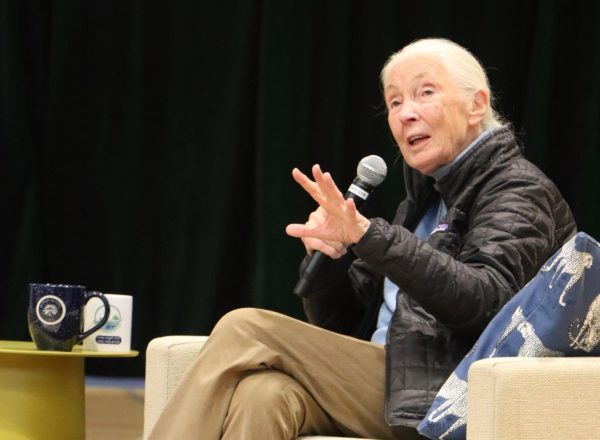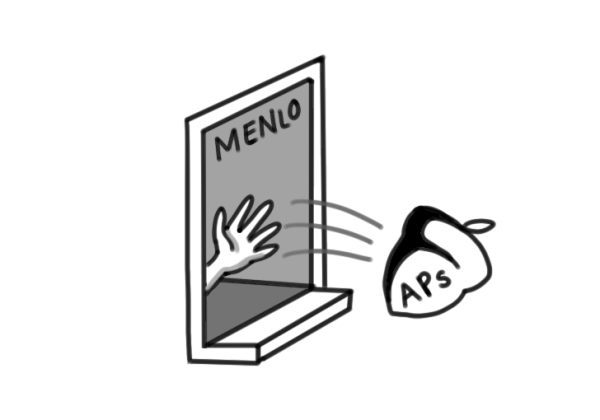How the 2018 Midterm Elections Will Affect You
Panel of representatives discuss the 2018 midterm election results on Nov. 15th 2018. Creative Commons photo: Jay Godwin on Flickr.
November 29, 2018
On Tuesday Nov. 6, 2018, a midterm election took place which elected state senators and representatives to Congress, state governors and passed bills in several states, including California.
This election had many firsts. The first female governors were elected in New Mexico, Maine and South Dakota, a Muslim woman and a Native American woman were both elected to Congress and 6 openly LGBT governors and representatives were also elected. Additionally, some states are still in the midst of counting votes for a run-off. For example, in Florida, the senate race and the governor race both had results with tiny margins of 0.15 percentage points and 0.41 percentage points respectively.
The first thing to note about the Senate elections is that it still has a Republican majority, something that the party is “poised to build on [that majority],” according to a Wall Street Journal article. The Republican party flipped three seats in the Senate, one in Tennessee, Indiana and North Dakota. Although these seats switched parties, the margins were very close; in Tennessee Marsha Blackburn won with a 54% of the votes, in Indiana Mike Braun won by 51% and in North Dakota Kevin Cramer won by 55%. One Senate race that received national attention was Ted Cruz, the Republican incumbent in Texas, against Beto O’Rourke, a Democrat. Cruz was able to keep his seat in Congress by a razor-thin margin, winning with 50.9% of the votes.
For California’s elections for Senate, Dianne Feinstein, who has been serving since 1992, was re-elected. She and the other California senator, Kamala Harris, are both democrats. Feinstein ran against Kevin de León, another democrat; de León received most of his votes from the rural areas of California, and Feinstein received most of her votes in concentrated cities like San Francisco and Los Angeles.
Despite not getting the majority in the Senate, the Democratic Party had a victory in the House of Representatives. As of Nov. 14, the Democrats won 228 seats, and the Republicans have 198 seats, with nine races still being called. Although they gained many seats, the Democrats, “did not get the tsunami they were hoping for,” according to the New York Times. Democratic Strategist Jim Manley believes that President Trump’s strong political beliefs may have led many districts to flip Democratic. “It’s pretty evident that President Trump is politically toxic in many of these suburban districts across the country,” Manley said to the New York Times. “He played to his base, but his over-the-top rhetoric turned off so many people that Democrats managed to retake the House.”
Democratic Representative from California Nancy Pelosi was more optimistic about the victory in the House. Pelosi has previously served as the minority leader in the House and is running to do so again during this next term. “When Democrats win — and we will win tonight — we will have a Congress that is open, transparent and accountable to the American people,” Pelosi said on election day to the New York Times.
California holds 53 seats in the House of Representatives; 42 of those seats are held by Democrats, the other 11 held by Republicans. Pelosi, the representative of California’s District 12 (Bay Area), is currently running to be the Speaker of the House, though it is unsure whether she will obtain the position.
Several propositions were on California’s ballot during this midterm election, and many of them passed. Below is a limited list and brief description of the propositions most relevant to high school students and its result in the election. To read more about each proposition, visit this website.
- Proposition 1: Housing Assistant Bonds for Veterans
- Voted YES
- Voting “yes” on proposition one was in support of the $4 billion investment by the state government in housing assistance and bonds for veterans.
- Proposition 2: Mental Illness Housing Bonds
- Voted YES
- Voting “yes” on proposition two was in support of the state government on placing a 1% income tax on individuals with over $1 million annual income to be used on housing bonds for the mentally ill.
- Proposition 3: Water and Environment Bonds
- Voted NO
- Voting “no” on proposition three was not in support of the government spending almost $9 billion on bonds for the environment including improving water quality, water storage and ocean ecology maintenance and protection.
- Proposition 6: Repeal Gas Tax
- Voted NO
- Voting “no” on proposition six was not in support of the government needing voter approval to implement laws on gas and gas taxes. Additionally, voting “no” supporting the tax increases that were implemented last year.
- Proposition 7: Daylight Savings Change
- Voted YES
- Voting “yes” on proposition seven was in support of keeping the Daylight Savings time change throughout the year. Meaning, Daylight Savings is not changing.
- Proposition 12: Increasing Farm Animal Living Space
- Voted YES
- Voting “yes” on proposition 12 was in support of minimum space requirements for livestock on large farms, and that animals that were kept in space smaller than the minimum would not be sold.
- Proposition C (Just in San Francisco): Taxes to Fund Homeless Service
- Voted YES
- Voting “yes” on proposition C was in favor of the city and surrounding counties to tax businesses to fund projects that aid the homeless and create more affordable living.












